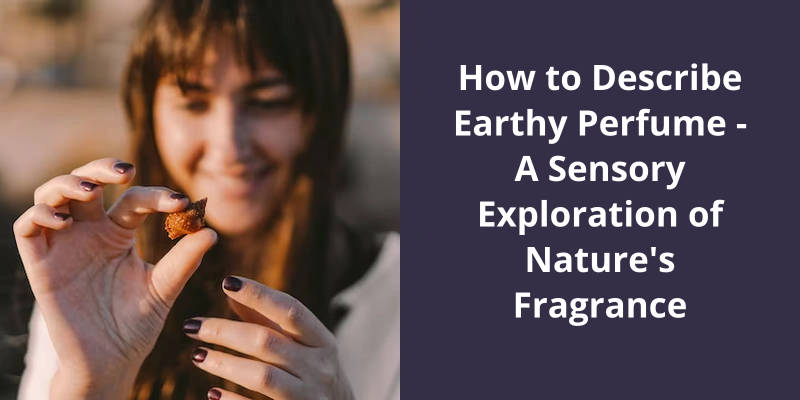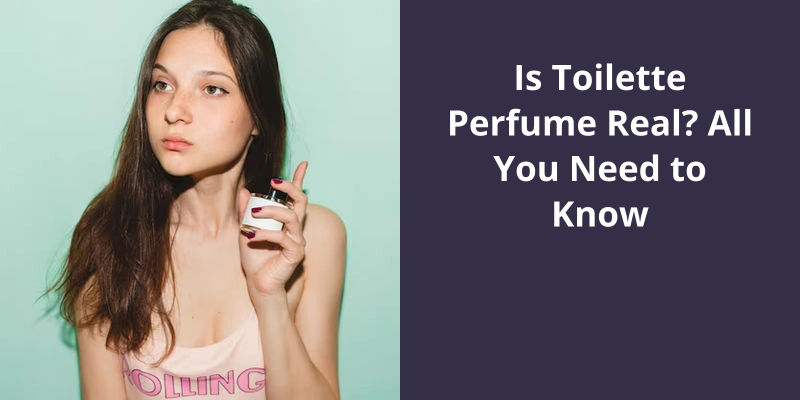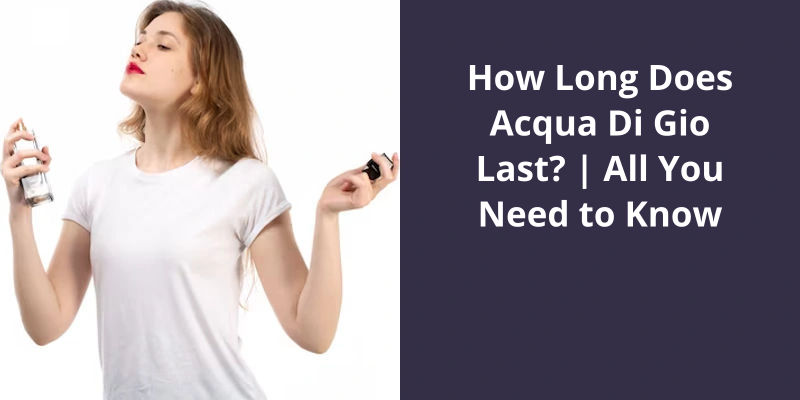Perfume does not typically lose its smell in the bottle if kept in optimal conditions. However, its fragrance may diminish over time, especially if exposed to heat, light, or oxygen, which can all cause the perfume’s ingredients to degrade. Additionally, perfume can change or lose its scent if its bottle is not sealed properly after use. To maintain its scent for the longest time possible, perfume should be stored in a cool, dark place and properly sealed after use.

Does Perfume Fade in the Bottle?
Perfume enthusiasts always love to smell fresh and fragrant wherever they go. They want their perfumes to retain their initial scents for long periods. However, it’s not uncommon for people to ask whether perfume fades in the bottle. The answer to this question isn’t straightforward, as it depends on how you store and handle your perfume.
They retain their original strength and character. However, as Pallez suggests, the fragrance can become oxidized and alter it’s scent profile, depending on air exposure. The key here is to reduce exposure to air as much as possible. This can be accomplished by storing your perfume bottle away from direct sunlight, in a cool, dark location, and using the appropriate cap or stopper to seal the perfume bottle tight.
Another factor that can affect the scent of your perfume is the ingredients used. For example, fragrances with heavy floral notes tend to break down faster than fragrances with woodsy, earthy tones. So, it’s essential to know the content of your perfume and how it responds to environmental factors.
It’s also important to consider the age of your perfume. Fragrances tend to weaken over time. However, this doesn’t mean they lose their aroma altogether. Aged perfumes still retain their original scent, but it may be more subtle and nuanced. In some instances, older fragrances can produce a more profound, sophisticated scent than their newer counterparts.
To ensure that your perfume lasts for an extended period without any significant changes, it’s best to buy your perfume in small quantities. Smaller perfume bottles tend to have less air exposure and can be preserved for a more extended period. If you must buy perfume in large quantities, it’s advisable to transfer it into smaller bottles to reduce air exposure.
Now that we understand why perfume disappears from the bottle, we can explore some ways to make your favorite fragrance last longer.
Why Does My Perfume Disappear From the Bottle?
Perfumes contain a mixture of volatile organic compounds (VOCs) that give them their distinct and lasting aroma. These VOCs are made up of small molecules that are able to escape from the liquid into the air. When a perfume bottle is opened, the VOCs start to evaporate, and the scent begins to dissipate. Over time, the concentration of these VOCs decreases, leaving behind a weak and less intense fragrance.
Factors like temperature, humidity, and air pressure can also affect the rate of evaporation of perfume molecules from the bottle. Higher temperatures and lower air pressure can cause the VOCs to evaporate faster, while high humidity can slow down the process. Exposure to light can also accelerate the degradation of perfumes, causing their scent to fade more quickly.
The type of perfume bottle can also make a difference in how quickly the scent dissipates. Bottles that have a loose cap or an imperfect seal may allow air to flow in and out more easily, which can speed up the loss of scent. Additionally, bottles that are stored in areas with a lot of air flow (like by an open window or near a fan) may also cause the fragrance to evaporate more quickly.
To help prolong the life of your perfume, it’s best to store it in a cool, dry place away from direct sunlight and humidity. It’s also important to keep the bottle tightly closed when not in use to prevent air from entering and escaping. If you want to use your perfume sparingly, consider spraying it onto your clothes or hair instead of directly onto your skin. These fabrics can absorb and hold onto the scent for a longer period of time.
Different Types of Perfume and How They Differ in Scent Longevity
- Citrus: Fresh, vibrant and uplifting scent. Has a relatively short longevity compared to other perfume types.
- Floral: Delicate, sweet and feminine fragrance. Lasts longer than citrus but can still fade after a few hours.
- Oriental: Warm, spicy and exotic scent. Has a longer longevity than citrus and floral, can last for many hours.
- Woody: Earthy, natural and woodsy aroma. Has a longer longevity than citrus and floral, can last for many hours.
- Aquatic: Oceanic and fresh aroma. Has a moderate longevity compared to other perfume types.
- Gourmand: Sweet and edible fragrance. Has a moderate to long-lasting scent.
Source: Why Does My Perfume Disappear From the Bottle – Refill Your …
When it comes to preserving the scent and quality of perfume, there are several common mistakes that people make. We’ve already mentioned how storing perfume in a hot or humid environment can cause it to degrade, but there’s another issue to consider: the container itself. Even if a perfume bottle is unopened, it’s important to make sure that it’s tightly sealed to prevent evaporation. In the following section, we’ll take a closer look at the best ways to store and protect your favorite fragrances.
Does Perfume Evaporate if Unopened?
Perfume has been a part of human civilization for thousands of years, with evidence of it’s use dating back to ancient Egypt. While perfume has come a long way since then, the question of whether perfume evaporates if unopened remains a common one among perfume enthusiasts.
One of the most important factors that can affect the quality of perfume is exposure to light. This is especially true for fragrances that come in clear or light-colored bottles. If perfume is left out in the open, it will be exposed to light and the components of the fragrance may start to break down, causing it to lose it’s scent and color over time. Therefore, it’s best to store perfume in a dark, cool place, such as a closet or dresser drawer.
Another mistake that people make when storing their perfume is exposing it to heat. This can happen if perfume is left in a hot environment, such as a bathroom or on a windowsill. The heat can cause the perfume to deteriorate more quickly, ultimately affecting it’s quality and longevity.
While it may be tempting to display your perfume collection on a shelf or vanity, it’s important to remember that perfume is a delicate product that should be treated with care. By taking the proper precautions, such as storing perfume in a cool, dark place, you can ensure that your fragrance lasts as long as possible and retains it’s quality and scent. Whether you’re a casual perfume user or a serious collector, following these tips can help you get the most out of your fragrance collection.
What Are the Different Fragrance Families and How Do They Influence the Scent of Perfume?
Fragrance families are categories that classify different types of scents used in perfumes. They consist of distinct olfactory notes that influence the overall fragrance composition. Understanding these families can help in choosing the perfect perfume according to individual preferences and personal style.
However, it can be frustrating when we invest in a pricey fragrance only to find that we can no longer detect it’s scent after a short while. In this article, we’ll explore the science behind this phenomenon and what you can do to keep your perfume smelling fresh.
Why Does My Perfume Not Smell Anymore?
Olfactory adaptation occurs when our odor receptors adapt to unfamiliar or intense smells in order to maintain equilibrium. As we continuously expose ourselves to a specific scent, our senses eventually stop registering it as strongly as they once did. This is why you may not notice the scent of your perfume as much as you used to, even if you haven’t changed the perfume you wear or how often you wear it.
One way to prevent olfactory adaptation from dulling your senses to your favorite perfume is to switch up the scents you wear on a regular basis. By rotating different perfumes, you give your senses an opportunity to reset and re-sensitize to certain smells, allowing you to appreciate the individual notes in each fragrance more acutely. This approach can help you fully enjoy your favorite perfumes more frequently.
It’s also important to note that other factors, such as the heat and humidity in the environment, can impact how strongly your perfume smells. High heat can cause the scent to evaporate more quickly than usual, while humidity can cause the scent molecules to break apart faster. This means that sometimes you”ll need to apply more perfume or use a higher concentration to achieve the same level of scent you’re used to.
In addition, it’s possible that the scent of your perfume has simply gone bad over time. Perfumes have a shelf life, and if exposed to sunlight or high temperatures, they can deteriorate and lose their effectiveness. In some cases, perfumes can also start to smell differently due to oxidation, or chemical interactions with other substances. If your perfume has changed noticeably in scent or consistency, it may be time to replace it.
By rotating different fragrances, monitoring environmental factors, and being mindful of the shelf life of our perfumes, we can prolong our enjoyment of them and continue to appreciate their unique aromas for years to come.
Different Types of Perfume Concentrations (e.g. Eau De Parfum, Eau De Toilette) and Their Impact on Fragrance Intensity and Longevity
- Eau de cologne – low concentration fragrance with a short longevity
- Eau de toilette – medium concentration fragrance with a moderate longevity
- Eau de parfum – high concentration fragrance with a long longevity
- Extrait de parfum or perfume extract – the highest concentration fragrance with the longest longevity
Perfume is an incredibly complex and nuanced art, with countless ingredients and aromas carefully combined to create a unique and beautiful scent. However, not all of these ingredients are necessarily pleasant on their own – in fact, many of them might seem downright repugnant to our noses. So how do perfumers use these foul-smelling substances to create beautiful fragrances? Let’s explore the fascinating world of “stinky” perfume ingredients and the ways in which they can contribute to a truly stunning scent.
Do They Put Bad Smells in Perfume?
These ingredients might sound less than pleasant, but theyre essential to create the complex scents we love in high-end perfumes. In fact, the musks and civet come from animal secretions, which might make some cringe, but are still used today as they provide a depth and richness that synthetic molecules cannot.
While some people may find these “stinky notes” repulsive on their own, they become more appealing when blended with other ingredients like citrus, florals, and spices. Perfumers are like chefs, carefully mixing and balancing notes to create a harmonious and well-rounded scent. So a small amount of a so-called “bad smell” can actually add character and interest to a fragrance.
That being said, not all perfumes contain animal secretions or intentionally unpleasant smells. Most commercial fragrances use synthetic molecules to replicate natural scents and create unique fragrances. Perfumers can also use their expertise to mimic a scent without using the actual ingredient. For example, they can use synthetic musk instead of civet to create a similar effect without harming animals.
Overall, it’s important to remember that fragrance is subjective. What one person finds repulsive, another might adore. Some people even seek out unusual or “unpleasant” smells, finding them intriguing or comforting. So don’t be afraid to explore different fragrances and embrace the diversity of scents that perfume has to offer. Who knows, you might just find your new favorite scent in the stinky room.
The History of Perfume and It’s Evolution
Perfume has a history spanning over 5,000 years, dating back to ancient Egypt. It’s evolution has been shaped by cultural, religious, and social factors. In the Middle Ages, perfume was associated with hygiene and was used to mask unpleasant smells. In the 18th century, fragrances became bottled and marketed as fashion statements. Today, perfumes are a multi-billion dollar industry with unique scents and personalized branding.
Conclusion
While some fragrances may maintain their potency for years, others may lose their aroma after just a few months. Exposure to heat, light, and air can also accelerate the evaporation of volatile compounds, causing the fragrance to weaken over time. Thus, it’s essential to store perfume in a cool, dark place and replace it periodically to enjoy it’s full potential.





